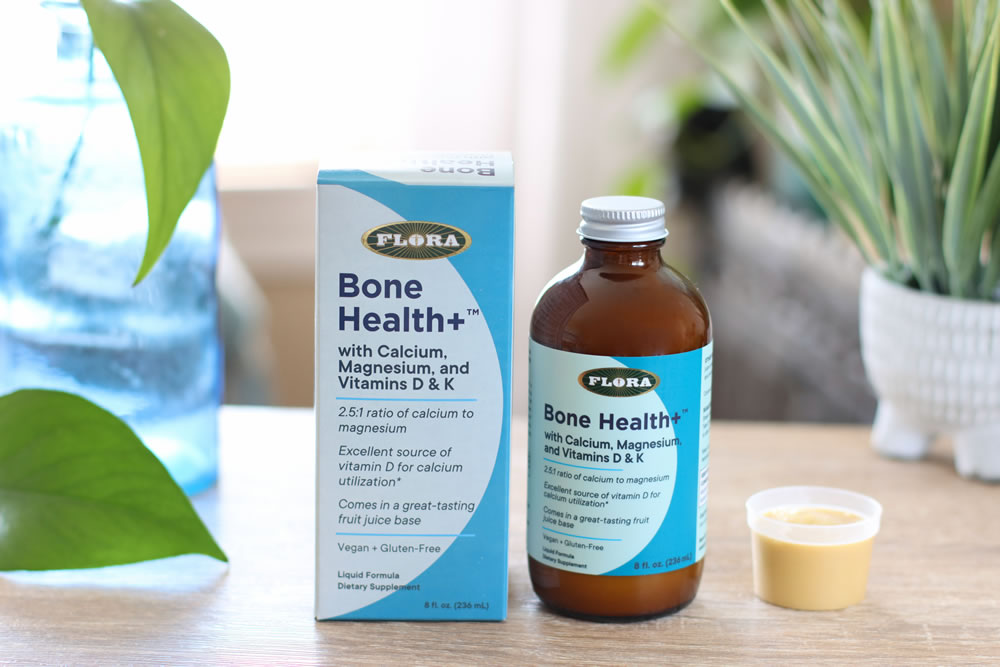Most of us know that vitamins C and D support the immune system and that calcium strengthens bones. But few of us know how important getting enough magnesium is to our health. Which means many of us are missing out on some important health information.
Read on to discover why magnesium is one of the most important minerals you may not be getting enough of.
What is Magnesium?
The 4th most abundant mineral in the human body, Magnesium (Mg) is a nutrient we need in relatively large quantities to stay healthy.
Incredibly, it’s responsible for over 300 biochemical processes that keep our cells and systems running smoothly.
A few important processes magnesium is needed for include (1):
- Protein and DNA synthesis
- Regulating blood sugar levels
- Maintaining blood pressure
- Keeping heart rhythm steady
- Maintaining muscle and nerve function
- Aiding the absorption of other minerals
- Balancing calcium, potassium, and sodium levels
- Keeping bones strong
- Detoxification
Dr. Norman Shealy, a world-leading expert in stress and pain management has said, “Every known illness is associated with a magnesium deficiency and it’s the missing cure to many diseases.”
And while a 2018 study found that nearly 50% of the U.S. population is magnesium deficient, other estimates believe that number is likely closer to 80 percent (2).
So, why aren’t more doctors calling for us to increase our intake of magnesium?
Magnesium deficiency (hypomagnesemia), is a common issue that often goes undetected in a clinical setting, simply because most health professionals aren’t trained to recognize the many ways a magnesium deficiency can present (3).
Testing for a deficiency can be even more difficult. Only 1 percent of the magnesium is found in the bloodstream and 99% is contained in other tissue including bone. Blood magnesium levels can test within the normal range even if levels in the rest of the body are low or there is a true deficiency (4).
The jury is in: magnesium is the nutrient we all need more of. And you could be magnesium deficient and not even realize it.
Here are some key signs and symptoms that you may need more magnesium in your diet:
1. You Get Leg Cramps, Involuntary Muscle or Eye Twitches
Ever suddenly get a leg cramp that won’t let up or wonder why your eye just won’t stop twitching? It could be magnesium deficiency. Magnesium plays a big role in healthy neuromuscular signals and muscle contraction so if you’re deficient, these types of muscle abnormalities may occur (5).
Restless leg syndrome is another warning sign of magnesium deficiency. To overcome leg cramps, muscle soreness, and restless leg syndrome, you will want to increase your intake of both magnesium and potassium (6).
Also, causes pain and tightness in the muscles. Taking magnesium can help relieve pain and soreness as it helps to alkalize the body and keep healthy pH levels in check (7).
2. You Take a Calcium Only Supplement
For years we’ve been hearing “Make sure you get your calcium!” But if you’re taking calcium supplements without magnesium you may be contributing to your magnesium deficiency.
Studies have shown that taking calcium by itself can reduce the amount of magnesium you absorb (8).
Also, the presence of magnesium is required for calcium to be absorbed into your bones (9). If that’s not enough, supplementing with calcium only has been linked to diseases like arterial calcification otherwise known as hardening of the arteries (10).
Upping your daily intake of magnesium can actually improve the way the body uses calcium and prevent the onset of cardiovascular disease.
4. You Don’t Sleep Well Or Have Insomnia
You won’t be your best if you don’t get in a solid 6 to 8 hours of sleep. Poor sleep quality can be a sign of magnesium deficiency and can even lead to insomnia, anxiety, hyperactivity, and restlessness.
One study found that taking magnesium before bed improved sleep quality (11).
5. Your Life Is Stressful
Life can be stressful and there’s no getting around it. And emotional and physical stress can both cause magnesium deficiency. Even things like surgeries, chronic diseases, medications, or traumatic life events can play a part.
In times of stress, your body will need more magnesium than usual. If you’re already low, stress can exacerbate the problem. Also the stress hormones adrenaline and cortisol can increase when magnesium levels are low (12).
Making sure you get enough magnesium will help to keep you calm and collected.
6. You Suffer From Anxiety or Panic Attacks
Panic and anxiety symptoms are the worst. And since magnesium has a calming effect on the central nervous system, low levels of magnesium can cause irritability and nervousness.
As magnesium levels continue to drop, it can leave you prone to high levels of anxiety, depression, and panic attack (13). Supplementing with magnesium has been shown to help promote a sense of calm while relaxing muscles and improving mood.
7. You Have High Blood Pressure or Heart Disease
Magnesium works with calcium to support healthy blood pressure and cardiovascular health.
High blood pressure or hypertension can be a sign of magnesium and calcium deficiency (14). And since hypertension is the cause of 50 percent of all ischemic strokes it’s best to practice preventative medicine and get your magnesium (15).
A study published in The American Journal of Clinical Nutrition found that a diet rich in magnesium may reduce the risk of a stroke (16).
Another 2017 study tested the effectiveness of magnesium supplements on patients with heart disease and found that heart disease patients who took magnesium twice a day for 6 months had better physical stamina and healthier blood vessels (17).
8. You Have Stomach Troubles
Digestive diseases like IBS, Celiac and Crohn’s disease can prevent you from absorbing a healthy amount of nutrients including magnesium (18).
9. You Can’t Shake That Tired Feeling
If you just can’t seem to get some pep in your step magnesium deficiency may be your problem. Magnesium plays a major role in the way the body produces cellular energy (19).
The main source of energy in the body is ATP (adenosine triphosphate), which must bind with a magnesium ion in order to become biologically active (20). If the ATP in your body is finding it hard to partner with magnesium it may leave you tired and fatigued.
10. You Get Migraine Headaches
Migraines can be debilitating. And if you do get them you may be low in magnesium. People who suffer from migraine headaches usually have lower levels of tissue and serum magnesium compared to those who do not (21).
One study showed that supplements with 360 to 600 milligrams of magnesium daily reduced the frequency of migraine headaches by up to 42 percent (22).
11. You Suffer From PMS
Research has shown that women with PMS (premenstrual syndrome) symptoms are lower magnesium levels than those without PMS.
Magnesium deficiency has even been linked to a variety of other women’s health issues including hormone balance, bone disorders, cramping, low energy, migraines, and mood swings (23).
12. You Take Prescription Or Over The Counter Medications
Certain drugs like diuretics, asthma medication, birth control pills, estrogen replacement therapy, or heart pills can decrease the amount of magnesium your body absorbs while increasing how much is flushed out by the body (24).
13. You Drink Caffeinated or Alcoholic Beverages Regularly
If you regularly drink coffee, tea, and soda regularly you have a higher risk for magnesium deficiency (25). Caffeine causes the kidneys to release extra magnesium even if you’re deficient.
Besides caffeine, dark-colored sodas contain phosphates, chemicals that bind with magnesium rendering it unavailable for the body to absorb.
14. You’re Pre-Diabetic Or Have Type II Diabetes
Magnesium plays an important role in the way your body metabolizes sugar. Magnesium aids in the activity and release of insulin and in maintaining healthy blood glucose levels (26). And magnesium deficiency be a cause of type II diabetes as well as a symptom.
Diets rich in magnesium have been shown to significantly lower the risk of type 2 diabetes. A recent study found that adding just 100 milligrams per day of magnesium lowered the risk of diabetes by 15 percent! (27)
15. You’ve Been Diagnosed With Osteoporosis
The older we get the more at risk we are for magnesium deficiency. A study published in Biology Trace Element Research found that supplementing with magnesium slowed the onset of osteoporosis “significantly” after just 30 days (28).
Combining magnesium with vitamins D3 and K2 may help support naturally the building of bone density even if you may already have osteoporosis.
How To Get Enough Magnesium
If you would like to add more magnesium-rich foods to your diet they include:
- Beans ( black beans, black-eyed peas, etc.)
- Nuts and seeds (pumpkin seeds, almonds, brazil nuts, pecans, walnuts, cashews, pecans)
- Whole grains such as brown rice and whole wheat bread (buckwheat, wild rice, brown rice)
- Green leafy vegetables (spinach, swiss chard, artichokes)
- Halibut
- Molasses
- Dark chocolate
But nutritional experts agree that it’s extremely difficult to obtain all the magnesium you need from diet alone. While most of us aren’t making the right food choices, modern food processing has left our food supply stripped of magnesium and other nutrients.
Recent reports have stated that the magnesium content in our vegetables has declined anywhere from 25-80% in the last century. And grain processing methods used for making bread and pasta are even worse. It can remove 80-95% of total magnesium (29).
The evidence is clear. Most of us just aren’t eating enough magnesium. So what do we do?
Adult men should aim for approximately 400 milligrams per day while women should shoot for around 300 milligrams daily.
Poor food choices combined with a general food supply low in magnesium have health professionals recommending magnesium supplementation to make sure you meet your needs.

If you’re looking for a boost of essential magnesium essential we highly recommend BONE HEALTH+™ from Flora Health.
It’s an easy-to-digest liquid solution that’s actually quite tasty and will give you 100 mg of absorbable magnesium per serving.
Bone Health is also:
- Free of alcohol, artificial additives, or preservatives
- Gluten and Wheat-Free
- Dairy & Lactose-Free
- Non-GMO
- Kosher
- Vegetarian
It even comes with a little measuring cup so you can decide if you would like to take more or less. Take it on its own or blend it with your morning juice or smoothie. Either way, you’ll be feeling great.

Want to boost your magnesium levels and see your health bloom?
Visit Florahealth.com for more info, recipes, and health tips or to order Bone Health to give your body a boost of magnesium.
Related Reading
⇒ 6 NUTRIENTS TO HELP KEEP YOUR BONES STRONG AND HEALTHY
⇒ 13 FOODS TO BOOST YOUR VITAMIN D
⇒ HOW TO SLEEP BETTER NATURALLY
⇒ HOW TO CALM YOUR ANXIETY AT NIGHT
⇒ 25 EASY WAYS TO REDUCE STRESS AND ANXIETY
⇒ 7 SIGNS YOUR DIGESTION COULD BE BETTER




